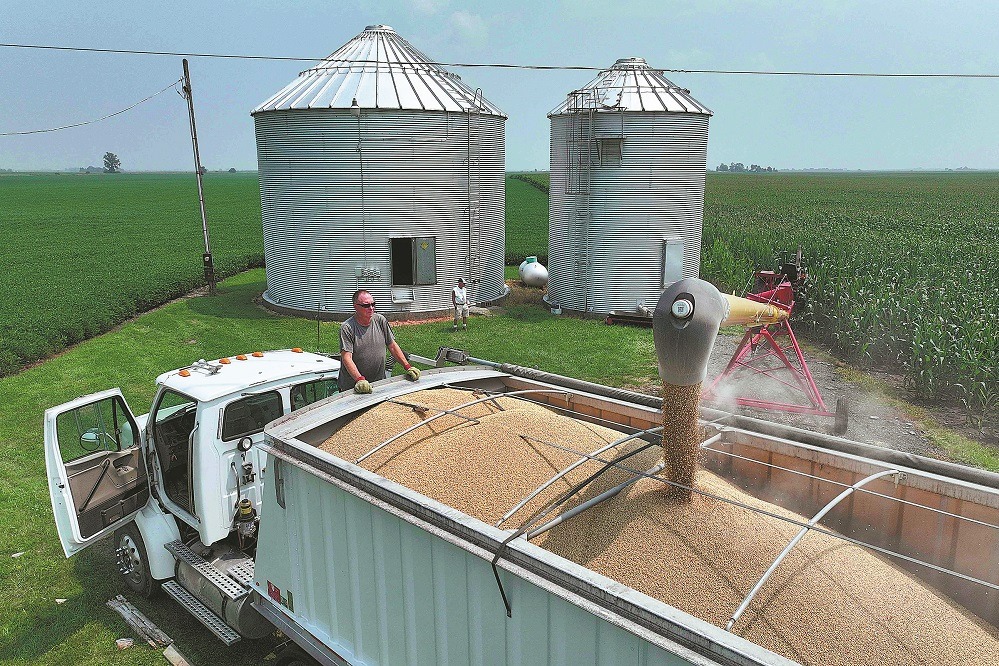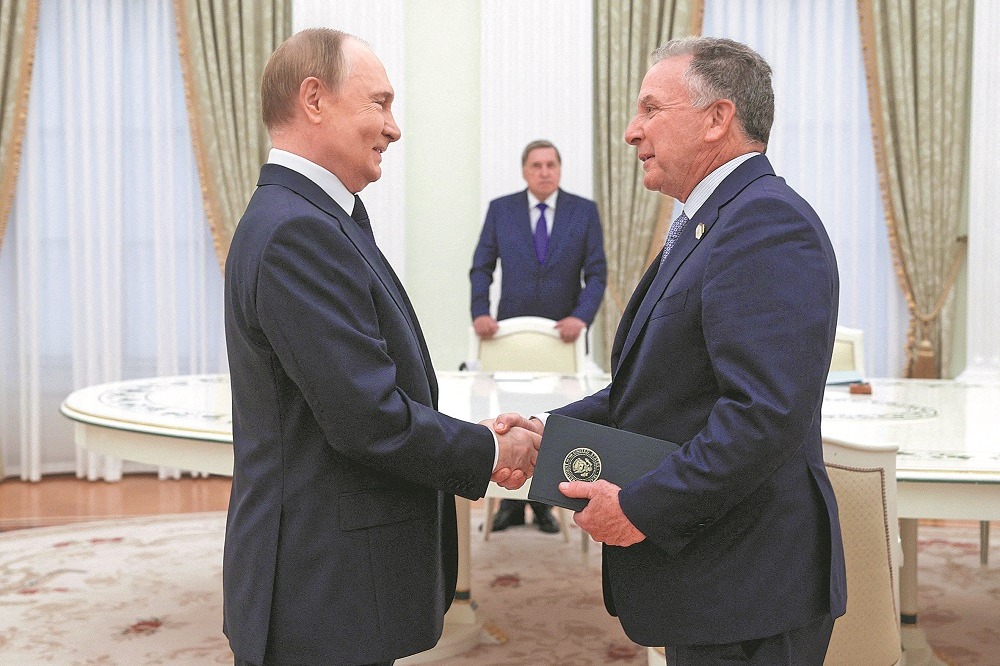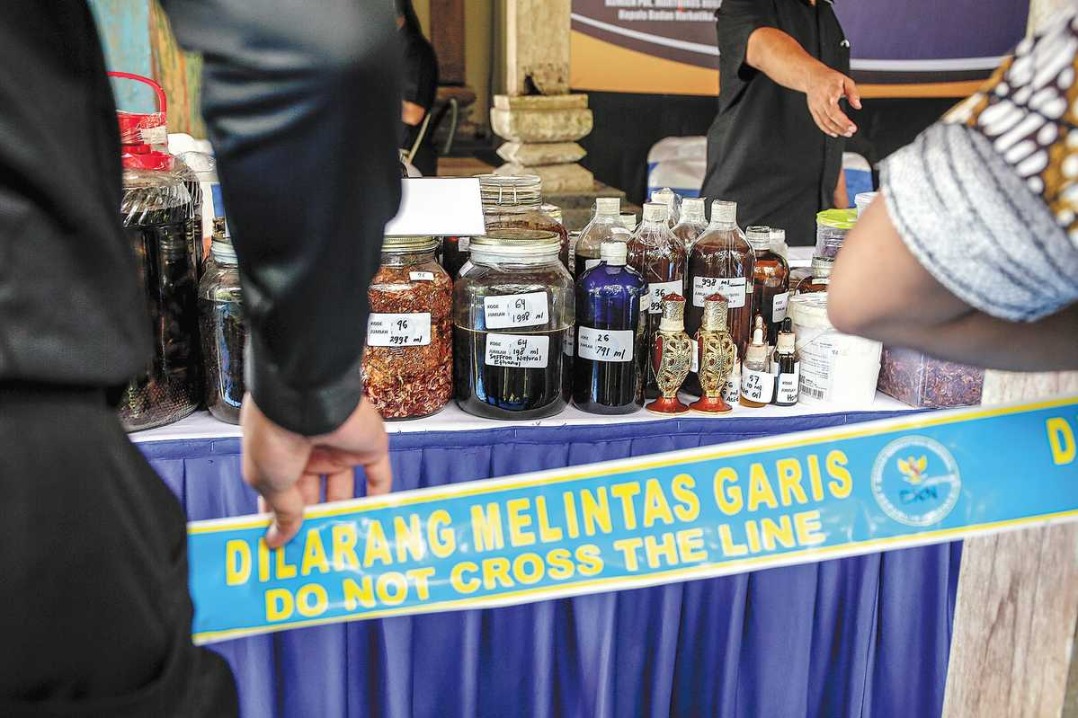US stocks continue rally

US stock market rally continued Monday as investors placed more bets on a strong rebound following the government-ordered shutdown of the economy to curb the spread of the coronavirus.
Investors believe COVID-19 can be contained and the economy will re-open, spurring growth. The market appears to be betting on a V-shaped recovery – a sharp rebound rather than a long slog to previous levels.
Edward Yardeni, president of Long Island, New York-based Yardeni Research, said the stock market appears to reflect reality on the ground.
"The market has been a ray of sunshine – basically investors being convinced that we'll get out of this, and the economy will recover along with earnings," he told CNBC.
"So far, that forecast seems to be working out pretty well. The economy may very well be catching up with the stock market rather than the stock market going off on its own."
He said the economic plunge caused by the economic shutdown will be followed by a sharp recovery.
"It's going to be a V-(shape) initially," Yardeni said. "Real GDP could be down 40 percent to 50 percent in the second quarter. But the worse it is in the second quarter, the greater likelihood we'll see something like a 20 percent increase in the third quarter."
Since hitting a low on March 23, the Dow has gained about 48 percent and the S&P 500 has added about 45 percent in the rally.
Friday's job report appeared to support expectations of a sharp turnaround. After two months of job cuts, employers added 2.5 million jobs in May – the most in a single month dating to 1948 when record keeping began, and anecdotally, since 1939 when the US boosted production to fight World War II.
The US jobless rate in May fell to 13.3 percent from 14.7 in April. But the current rate is still the highest since World War II and there are still about 20 million unemployed.
Between December 2007 and February 2010, the US lost about 9 million jobs in the downturn sparked by the collapse of the sub-prime mortgage market.
In early trading Monday, the Dow Jones Industrial Average gained 263.20 points, or 0.97 percent, to 27,382.20. The S&P 500 added 0.42 percent to 3,205.88. The Nasdaq Composite added 0.02 percent to 9,815.59
On Friday, the Dow climbed 829.16 points, or 3.15 percent, and closed at 27,110.98. The S&P 500 added 81.58 points, or 2.62 percent, and closed at 3,193.93. The Nasdaq Composite rose 198.27 points, or 2.06 percent, and closed at 9,814.08.
Bank stocks are benefiting from the apparent economic rebound. JPMorgan Chase and Citigroup, both up about 23 percent in the quarter to date.
In early trading Monday, JPMorgan Chase gained 1.61 percent to $113.02 a share.
Citigroup added 3.39 percent to $60.90 a share.
Hilton Worldwide is up about 28 percent on the belief that business travel and tourism will resume.
In early trading Monday, Hilton Worldwide added rose 3.26 percent to $90.04 a share/
Shares of American Airlines are up more than 50 percent from the low. United Airlines is up about 34 percent and Delta has gained nearly 20 percent.
In early trading Monday, American Airlines gained 5.22 percent to $19.56 a share. United Airlines added 8.05 percent to $45.57 a share. Delta Airlines gained 5.88 percent to $36.19 a share.
Online retailer Amazon benefited from stay-at-home orders as brick-and-mortar retailers suffered, including J.C. Penney and Neiman Marcus, which filed for bankruptcy protection.
RBC increased its price target on Amazon to $3,300 a share, the highest on Wall Street. A price target is an analyst's estimate of a stock's future price and fair value.
In early trading Monday, Amazon gained 1.24 percent changed hands at $2,513 a share.
Drug maker AstraZeneca is discussing a possible merger with rival Gilead Sciences, Bloomberg News reported.
Terms weren't disclosed and officials declined to speak on the record because details are confidential and the proposed deal is in its early stages.
AstraZeneca, a UK-based company, is valued at about $140 billion. Gilead is valued at about $96 billion after the US Food and Drug Administration approved the company's drug to treat coronavirus patients.
But it appears Gilead isn't interested in the proposed deal and prefers strategic partnerships to a merger.
In early, trading Monday, AstraZeneca lost 2.21 percent and fetched $52.66 a share.
Gilead gained 1.59 percent to $77.99 a share.
Last weekend, OPEC agreed to extend its production cuts. During the downturn, Saudi Arabia and Russia flooded the market with oil in an attempt to gain market share, but prices fell as supply exceeded demand.
Many shale oil companies that capped wells when prices fell are now restarting production, The Wall Street Journal reported.
Nevertheless, production remains far below peak production prior to the coronavirus pandemic when the US pumped 13 million barrels a day.
US prices turned negative in the depths of the downturn as demand collapsed. Supply exceeded demand and storage capacity reached capacity.
On Monday, futures for West Texas Intermediate crude oil, the guide for US prices, fell $0.66 to $38.90 a barrel Brent crude, the worldwide benchmark, fell $0.56 to $41.72 a barrel. The price of oil is a proxy for future economic activity.
In early trading Monday, Occidental Petroleum gained 9.72 percent, Exxon Mobil gained 2.68, Chevron gained 1.84 percent, and ConocoPhillips added 2.14 percent.

































